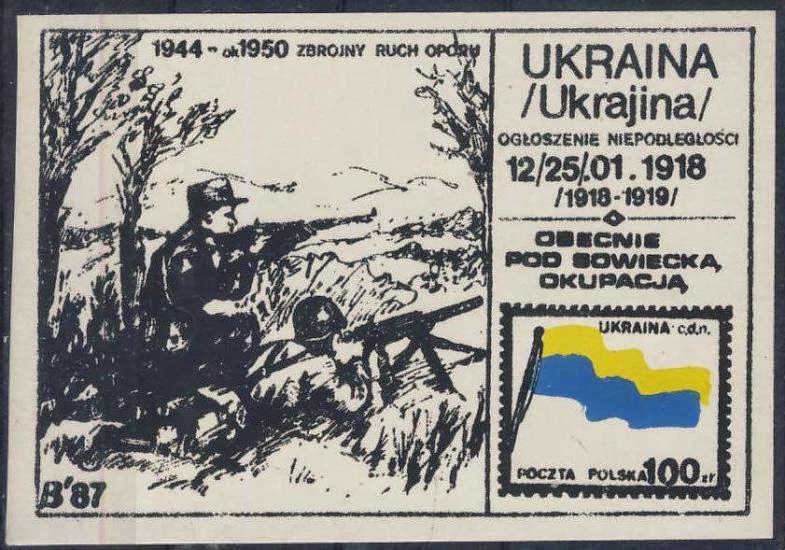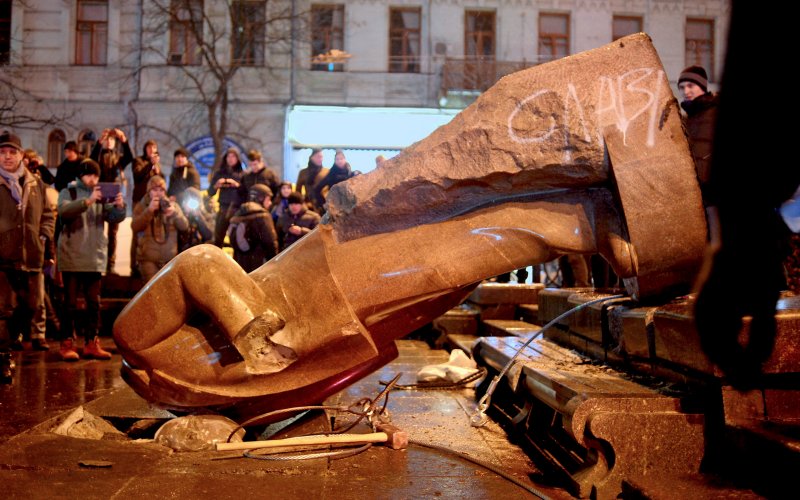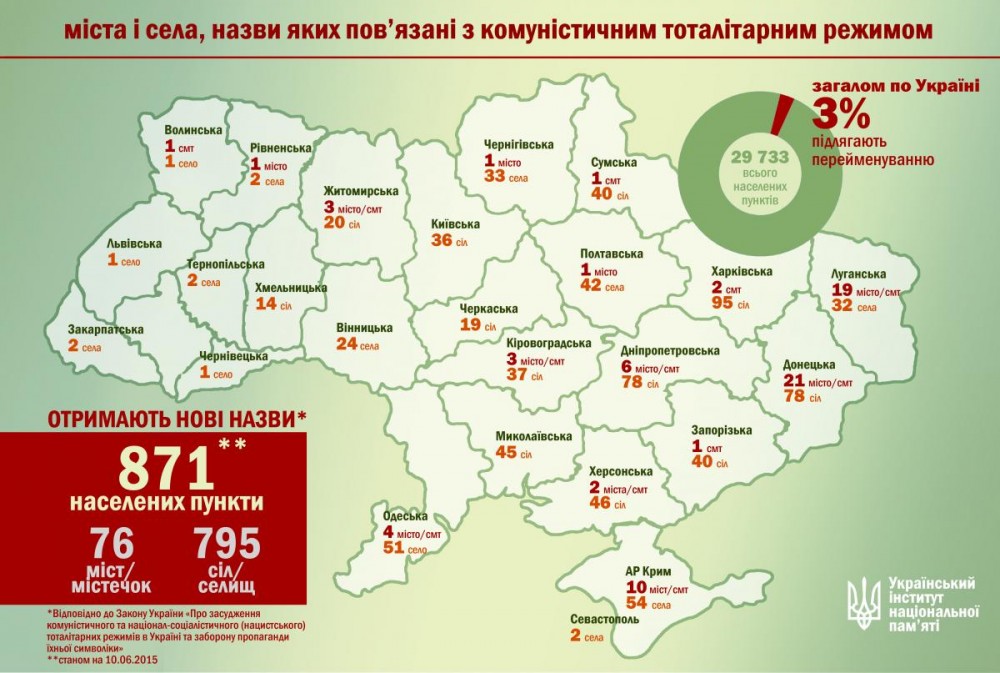Below is a full translation of the original Russian article appearing on the Open Russia website.
Sixty years ago at the XXth Congress of the CPSU [Communist Party of the Soviet Union], Nikita Khrushchev presented a report entitled “On the Cult of Personality and Its Consequences,” officially ushering in the liberalization of the Communist regime. Historian Andrei Zubov explains what has changed as a result of de-Stalinization and what hasn’t, why Stalin is again viewed as justified, and how to melt the ice castle.
What Effect Did Khrushchev’s Secret Report of 1956 Have?
What occurred at the XX Congress was quite an unprecedented event not only in the Soviet Union, but throughout the world Communist movement. Because the main axial figure of the entire Communist movement supporting the Soviet Union was, of course, Stalin (even though there was another, Trotskyite movement). Stalin was Communism’s center and its very essence. It was his management methods, his attitude toward the individual, and his relation to the world that people all over the world with Communist views aligned themselves with – in China, in Europe and in Latin America, not to mention in the Soviet Union. The condemnation of Stalin, and for the first time revealing information of his crimes (almost exclusively against members of the Party – the repression after the XVII Congress of the CPSU (b), the ’48 “Leningrad Affair”) turned people’s heads upside down. Many people simply didn’t believe it. Others said that it was a provocation. Still others denounced Khrushchev and said he was a traitor to the cause of Communism. Of course those who had previously opposed Stalin or suffered under him were elated.
Actually, intelligent people had noticed this process to some extent even earlier. Indeed, the de-Stalinization process began with Stalin’s death – literally from his death in March 1953. From those very first days, Beria
, then, after Beria’s overthrow, Malenkov and Khrushchev began the process of gradually releasing people from the camps, gradually improving the circumstances of people working in agriculture, the collective-farm peasants. They began easing censorship and stopped inflating the personality cult of Stalin. Even before Stalin had been buried, they said, enough is enough, we do not need all these incredible eulogies, these incredible recitations; let’s get to the business of nation-building. Smart people had already noticed that Stalin’s closest associates were not singing his praises as they did right up to his last day of life. Naturally, the case against Jewish doctors was halted as were many other matters.
1956 was both unexpected and expected for those who were well versed in the Moscow political kitchen.
What Changed and What Didn’t Change as a Result of De-Stalinization
How was de-Stalinization undertaken, and was it only superficial? Certainly it was not superficial. Yes, monuments were removed – this was very important. Stalin was tossed out of the mausoleum. This was also important. But much more important were the facts that were told about the serious crimes committed under Stalin. And a lot of people had been posthumously rehabilitated. These people had been condemned mostly by Article 58 as those who acted in a “hostile” manner (as spies, conspirators, terrorists) against the Soviet regime. A huge number of people who were killed by Stalin were rehabilitated, and those few who survived, were rehabilitated in life, and a lot of people returned. Despite all the incredible mistakes of Khrushchev, despite the fact that he too was a murderer and a criminal like Stalin – both in Ukraine and in Moscow – a huge number of people of that generation were grateful to him for having been given their freedom, those who were exonerated, those who returned from forced exile. And in general the era of total repression stopped at that time. Let us not forget that it was in 1951 that Stalin initiated a whole new round of repressions. He was clearly leading the country to a new 1937. People who had served all their time and those who had not, those who had been exiled, even those exiled nearby, within 101 kilometers of Moscow, they were all arrested again in 1951-52 and sent to Siberia, in very difficult conditions. Many were middle-aged, and, of course, this was a death sentence for them. Virtually everyone who did not die was immediately returned.
Khrushchev, himself a Stalin accomplice, his younger companion, was elbow-deep in blood himself. And, of course, Khrushchev didn’t admit everything.
All of the ordinary people who were killed, of which there were a thousand times more than the Communists – peasants, workers, intellectuals outside the party, priests, people of all religions – they simply were not remembered. The Holodomor was not remembered. Lenin’s repression was not remembered. The Red Terror of 1918-1921 was not remembered, neither were the first years of famine in 1921-22. It had all been forgotten. Only Stalin’s crimes and mainly those of 1937 were mentioned.
Naturally, sometimes it was more severe and sometimes less, but it lasted the entire time. 1937 was important for the party bosses, for the directors because it was their heads that were rolling. Although it was not only their heads, in fact, the heads of ordinary people were rolling a hundred times more. But the bosses were naturally afraid for their own and remembered only their own. That is why they began by condemning only the terror.
Stalin was condemned as the man who destroyed the Party. This was the main point. Therefore, we settled the score with Stalin and that was that. We settled scores with Stalin’s henchmen such as Molotov not because he was Stalin’s henchman, but because he opposed Khrushchev. That is what he was primarily accused of, not that he participated in the cult of personality or Stalinist repression. Beria was charged with participating in repression, but by the summer of 1953, Beria was already in prison.
It is interesting that Stalin was the major figure in the life of the Communist Party, and thus the condemnation of Stalin therefore meant a condemnation of his regime. But they did not go there. And so, almost immediately after the sacking of Khrushchev in 1964, under Brezhnev began the whitewashing of Stalin. It began slowly but grew greater and greater. Firstly, they said over and over that the party line had been correct in spite of the personality cult. This was the mantra of the Bolsheviks at the time. That is, everything was condemned, except the repression by the active Party bosses, the generals and so on. Secondly, it was under Brezhnev that talk gradually began of Stalin as an ambivalent figure, one with a negative and a positive side. And the positive side was first and foremost associated with the defense of the Soviet Union in the years 1941-45 and the victory in the Great Patriotic War.
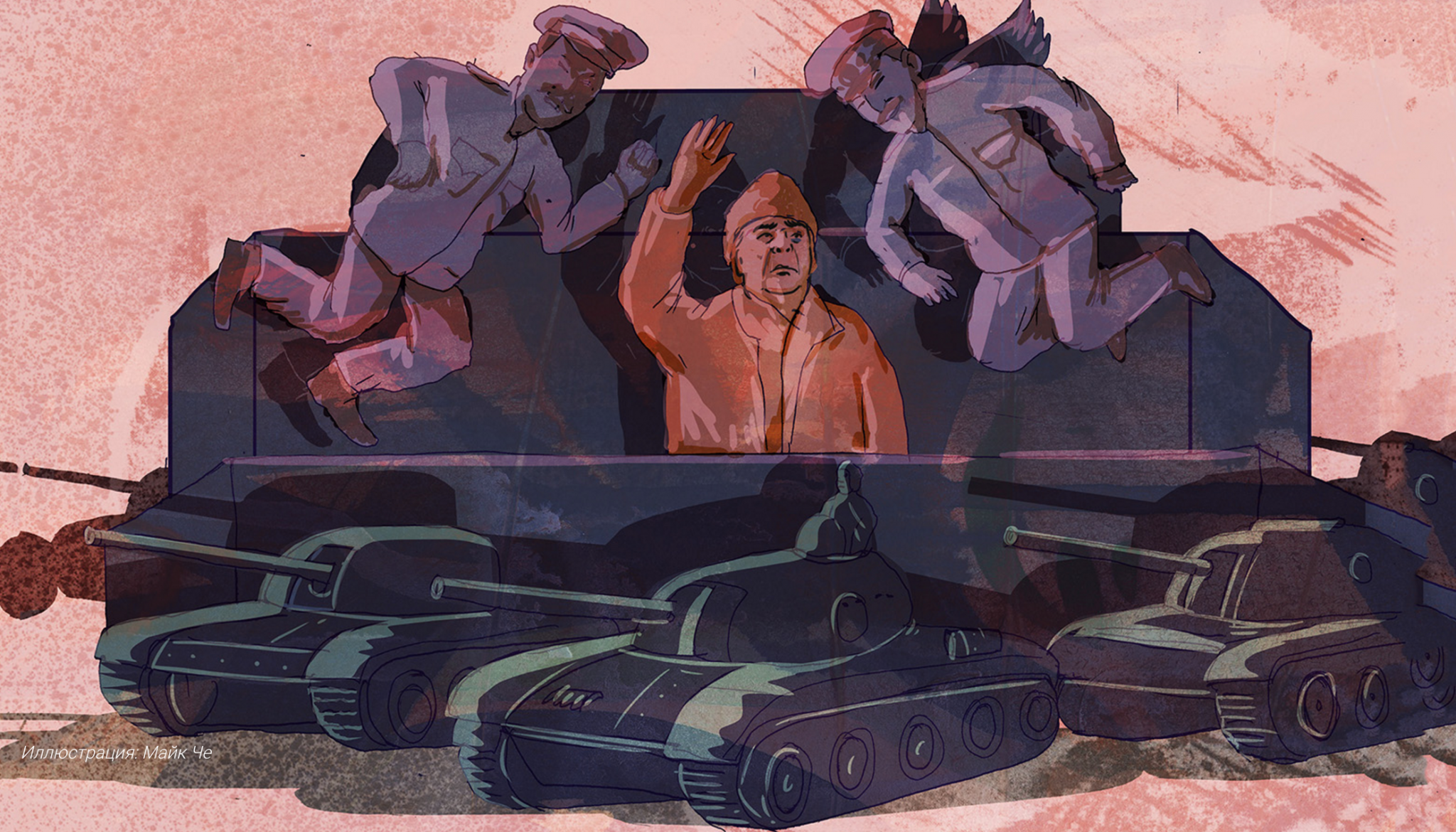 The memory of the Great Patriotic War had already been uprooted even while Stalin was alive. In 1946 he ordered to stop celebrating Victory Day. Brezhnev resumed the celebration of Victory Day on its 20th anniversary in 1965. The victory was primarily a validation of the Party and Stalin as the one who lead to that victory. Completely suppressed was the fact that Stalin had actually been one of the main instigators of the war, both through the Comintern and then directly through the Molotov-Ribbentrop Pact of 1939 when he became an ally of Hitler. Why has the term “Great Patriotic War” been foisted upon us? Because we have separated the war which began in Europe, September 1, 1939, in which Stalin was an ally of Hitler against the Western democracies, from the war that began when Hitler attacked Stalin, turning Stalin into an opponent of Hitler by virtue of which he became an ally of the Western democracies in the anti-Hitler coalition. For the Bolsheviks, Communists and the current government, it was important to forget about that first period; in Soviet times we talked about it hurriedly. The Molotov-Ribbentrop Pact
The memory of the Great Patriotic War had already been uprooted even while Stalin was alive. In 1946 he ordered to stop celebrating Victory Day. Brezhnev resumed the celebration of Victory Day on its 20th anniversary in 1965. The victory was primarily a validation of the Party and Stalin as the one who lead to that victory. Completely suppressed was the fact that Stalin had actually been one of the main instigators of the war, both through the Comintern and then directly through the Molotov-Ribbentrop Pact of 1939 when he became an ally of Hitler. Why has the term “Great Patriotic War” been foisted upon us? Because we have separated the war which began in Europe, September 1, 1939, in which Stalin was an ally of Hitler against the Western democracies, from the war that began when Hitler attacked Stalin, turning Stalin into an opponent of Hitler by virtue of which he became an ally of the Western democracies in the anti-Hitler coalition. For the Bolsheviks, Communists and the current government, it was important to forget about that first period; in Soviet times we talked about it hurriedly. The Molotov-Ribbentrop Pact
was mentioned but the part about the division of spheres of influence in Eastern Europe remained a secret: The whole world knew, but it was not known in the Soviet Union.
The aggressive policies of Stalin led to this war. Destruction of the generals of the Red Army led to the war being conducted ineptly, and because of this vast numbers of people died, vast expanses of the Soviet Union were occupied, and so on. And so the attitude towards the war became like a fetish in order to validate Stalin.
Why is Stalin Back in Fashion?
Actually Stalin never really went out of fashion. But now he’s becoming more and more fashionable. If earlier he was not so evident in society, and the government was ashamed to validate him publicly, that all changed from the moment of Crimea’s annexation in 2014. That is when Stalin began to be validated publicly in earnest. And at the same time were validated all things Soviet, because in fact Soviet meant Stalin. Lenin only ruled for a few years. He committed incredible atrocities, but if, say, after 1923 Soviet rule had vanished, then Russia would have been restored, and the Leninist period would have been remembered as a terribly bloody but short period of civil war. But it was Stalin who ruled for 30 years from 1923 to 1953. It was Stalin who created the Soviet state, the Soviet man, the Soviet mentality that destroyed Russia. He destroyed the Russian people and the people of various nationalities in the Soviet Union. In the 1920s we still had a kind of sub-Soviet society, where people were still Russian, Ukrainian, Jewish – but not non-Soviet, they were still citizens of the Russian state, whether they liked it or not, who were submitting to Bolshevik rule. After Stalin, a Soviet society was formed.
Stalin is a sacred figure for Communists. If you disavow Stalin completely, then you are completely disavowing Soviet power along with him. You would in effect have to disavow everything in today’s government directly associated with Bolshevism. The same KGB, the same people from the Communist Party who currently hold important positions. The country is governed by the KGB and the KGB – this is what? It’s the force mechanism of the Communist Party, its repressive mechanism.
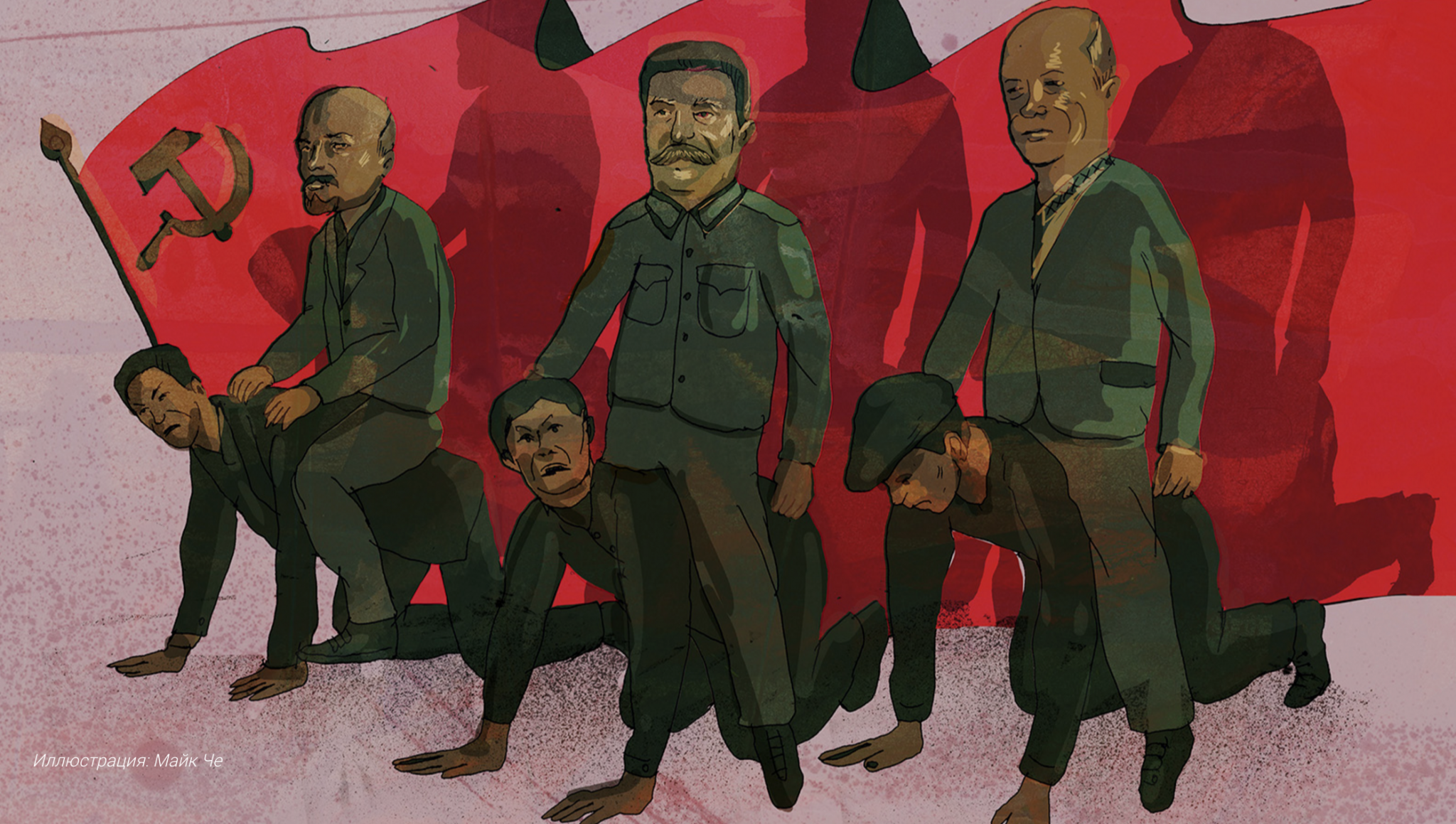 Stalin isn’t just a symbol. If anything, Stalin is the axis around which revolves the entire current government. Remove the axle and everything will fall apart, because then you’d have to say, you were a criminal! The KGB was up to its ears in the blood of the Russian people, and you volunteered to work, so you too are a criminal! Nobody dragged you there by force. You’re a criminal! And how does a person cleanse themselves from this? They don’t. Therefore, they need to justify Stalin so that it turns out that there was no actual crime after all.
Stalin isn’t just a symbol. If anything, Stalin is the axis around which revolves the entire current government. Remove the axle and everything will fall apart, because then you’d have to say, you were a criminal! The KGB was up to its ears in the blood of the Russian people, and you volunteered to work, so you too are a criminal! Nobody dragged you there by force. You’re a criminal! And how does a person cleanse themselves from this? They don’t. Therefore, they need to justify Stalin so that it turns out that there was no actual crime after all.
Just look at the entire current phraseology used by Putin and others in the government. This is the phraseology of Stalinism justification. In a recent interview Putin repeated Brezhnev’s words almost exactly, that on the whole the Party’s actions were correct during the period of repression. This is exactly what Brezhnev said. I am therefore not at all surprised by the current justification of Stalin.
For 25 years no one has uprooted Lenin. In this sense, the state of mind has not changed to this day. Khrushchev uprooted Stalin in 1961 after the XXII Congress. After that Lenin became even more important than before. Under Brezhnev, we celebrated the 70-year centennial of Lenin’s birth with pomp and circumstance. This honor was preserved even after the end of Soviet rule. Although the regime collapsed, and everything had been revealed, all the books that were published about it, it became obvious that Lenin had been just as bloody a maniac and just as much an enemy of Russia as Stalin. Only Lenin ruled for fewer years. Studies have shown that more people were killed each year under Lenin than under Stalin! Under Stalin, one million people died during an average year. But under Lenin the average figure is one million and 600 thousand. Despite the fact that Lenin was almost a more bloody tyrant than Stalin, neither Yeltsin nor Putin had him thrown out of the mausoleum. Neither have they removed any of his statues. They haven’t renamed the city streets that bear his name and the name of his accomplices. We just saw this: people wanted to rename “Voykovsky” who was also a criminal (four times over), to rename “Voykovsky” the name of the person who killed this accursed Voykov [i.e. the student Boris Koverda]. But who knows that Koverda was the Russian patriot who killed Voykov because he was a bloody red tyrant and a murderer? But about Voykov we know everything. People just didn’t want to have his name go away.
They feared for their power. They were afraid of the people. And now, finally, Putin shows his true colors – the ones he always wore during the Soviet period. For a while he wore a facade, that of a liberal democrat. But now he has shown who he really is, for the same reason that he went to work for the KGB in his time. And, accordingly, Stalin has again become a hero.
If we look at who has held leadership roles from Yeltsin and Gorbachev during the Soviet era, we can see that it has been a normal progression of the Soviet elite. Old people die, they are replaced by a new generation, but so far it’s all those people who are actively involved in the preservation and reproduction of the totalitarian communist regime. The regime built by Lenin and Stalin has never gone away. And of course, they revere and cherish its father-creator. Remember what the first thing Putin did when he came to power, even though it was a different time, a time when he still seemingly had liberal tendencies when his sovereign-emperor was just buried with military honors? He restored the memorial plaque to Andropov at Lubyanka [KGB Headquarters – Ed]. Andropov was a faithful Stalinist who in the ’70s and ’80s committed unbelievable crimes, creating a system of psychiatric hospitals for compulsory treatment of dissidents, where people were made insane through injections and other means, and the camps where torture was used. It was not on the scale of Stalin, but it was also terrible, and those who were there, remember it well. And this is the man who Putin wanted to honor by bringing back a plaque in his memory.
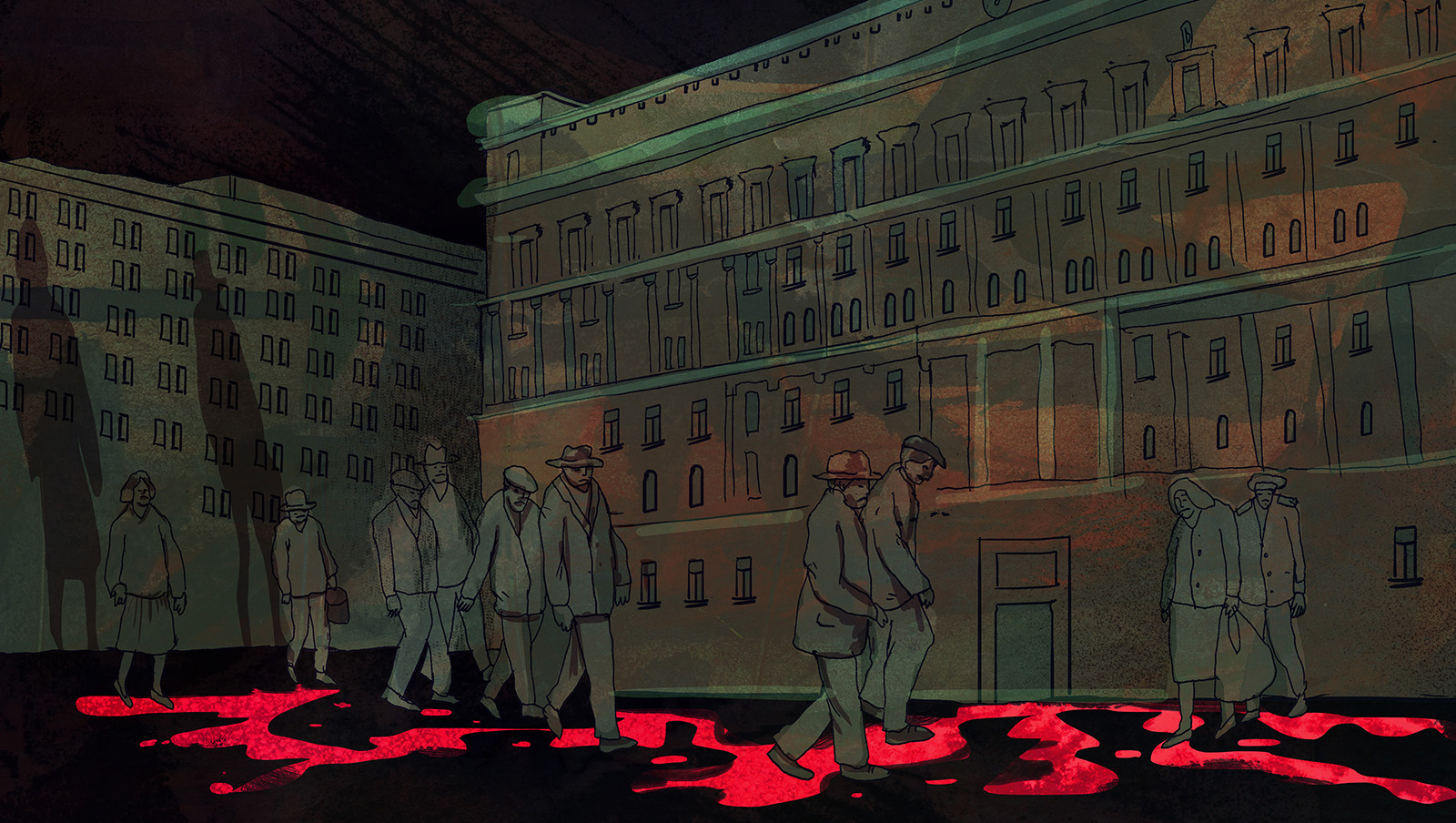
On Symbolism and Systematicity
In Central and Eastern Europe Communism was overcome. There was a system of decommunization and an opening up of archives (all of our KGB archives are closed). Monuments were toppled and property was returned to the descendants of those people from whom it had been taken.
They have split among themselves what had been stolen from the entire Russian people by Lenin and Stalin. They confiscated everything, but never returned it to the people. Instead, they just divided everything among themselves. Therefore, it is clear that for them, these figures are saints and are of primary significance. If we were to remove Lenin and Stalin from the mausoleum and say everything about them that must be said, rename streets, return, where possible, property, you will see that the country will change. The country would be different. This is a central problem. While all this remains, we will remain a post-Soviet state. We will not be a new Russia, an open Russia, like the name of your organization. While everything Soviet remains, we have no reason to even hope for change. Without systemic decommunization modeled on Central Europe, we have no future. We have no future at all.
Lenin in his mausoleum is not merely a symbol. It makes no difference whether we have a red flag or the tricolor, the Soviet anthem or a non-Soviet one. These symbols define life. If anything, he is the lynchpin: if you remove it, simply bury Lenin in St. Petersburg, at the Volkov cemetery next to his mother (there’s no need to mock the body!), and before your eyes, the ice castle which was created by Lenin and Stalin in place of Russia will begin to break.
Of course, we should not limit ourselves and we should undertake the tremendous amount of actions taken in Europe: systematic decommunization requires legal changes, lustration, restitution of property rights, changing the historical paradigm, change with respect to nationalities of people who were forced to leave Russia, and their descendants so that they can again become citizens of Russia. All descendants of those who left or were forced out of Russia during the Soviet period should be able to become Russian citizens automatically upon returning. We still do not have such a system. Putin will occasionally kindly bestow Russian passports on some, but the majority gets nothing.
On the Habit of Submission
Of course, we are seeing the results of genocide. The 20th century began in Russia with two revolutions. Well, what a habit of humiliation! 1905, 1917. The entire beginning of the last century was one continuous revolution with few interludes. And before that was the Pugachev's Rebellion. After the death of Nicholas I, everyone feared another Pugachev and because of that his son Alexander II carried out large-scale reforms. The Russian people were no more slaves than any other.
By means of a kind of horrific selection, by murdering the most active, honest, noble, decent people (or forcing their expulsion abroad), they dramatically worsened the moral fabric of the people. Those who survived were the broken ones. Those who stood straight died. That’s why we are a broken people, and this is the result of the Soviet regime. We harnessed, bridled and castrated our people. We are like an old gelding, who once was a young and vigorous horse. Before that we were different. Leninism-Stalinism did this to our people.
 Our task now is to rebuild civil society, to restore the responsible citizen. It is extraordinarily difficult. This task might be even more complicated than decommunization. But we have to build it. There are plenty of forms, and it can be done gradually. Something is already happening, even without government action: simply by virtue of the change in generation, by virtue of new generations that have lived in a free Russia, who could go abroad, read any book, a different kind of person is already forming. We would do a great thing if we liberate our people from this terrible negative genetic selection. I think it’s very difficult but possible.
Our task now is to rebuild civil society, to restore the responsible citizen. It is extraordinarily difficult. This task might be even more complicated than decommunization. But we have to build it. There are plenty of forms, and it can be done gradually. Something is already happening, even without government action: simply by virtue of the change in generation, by virtue of new generations that have lived in a free Russia, who could go abroad, read any book, a different kind of person is already forming. We would do a great thing if we liberate our people from this terrible negative genetic selection. I think it’s very difficult but possible.
For both the younger and older student, the most important thing is the personal example set by the teacher. And who will be our teachers, if they come from the same broken people as us? This is a huge problem. It’s also important to receive an education abroad and experience life abroad and work experience in international organizations as well as in foreign institutions. We need the return of the old emigration and their descendants – Western cultured people – so that they can work here, so they get the property that their grandparents, great-grandparents had, so they can do their business here, teach here, engage in their cultural activities here. This will create an alternative to the Soviet habit of life. In this broad palette should be education and training of various forms.
And then we must come to know the crimes of Bolshevism. How did denazification of Germany get started? As early as 1945, as soon as Germany was liberated from the Nazis, the Allies began to organize compulsory excursions to the death camps, to the very places like Dachau. People could see what the Germans had been doing. They showed horrible movies with mountains of corpses and so on. And this process is still on-going! For example, there was a recent film called “The Pianist” about the fate of a Jewish-Polish pianist during the Holocaust. People watched it and were horrified. A few years ago in Germany there opened an exhibition called “Wehrmacht” about its criminal activities during the war. Many Germans still do not believe it, but gradually they are learning. All of this has to be. We all have to be liberated from the crimes. Then we can really build a new Russia.
Related:
- Holodomor: Stalin's genocidal famine of 1932-1933 (Infographic)
- Stalin's genocidal Holodomor campaign of 1932-1933. What we know vs. the denialist lies
- Stalin's expansionist designs blocked signing of second Molotov-Ribbentrop treaty
- Stalin and the Russian Orthodox Church
- Putin, Stalin, and the West
- Like Stalin, Putin using a secret infrastructure to maintain power, Pavlova says
- Putin 'played no less role' in creation of ISIS than Stalin did in rise of Nazis, Shmulyevich says
- Putin's anti-terrorism, like Stalin's anti-fascism, all about expanding Moscow's influence abroad, Pavlova says
- Crimean Anshluss opened way for justification of Stalin and Soviet system, Zubov says
- Putin's fixes and fixations: Russia's president prefers Stalin to Lenin, Soviet history to scandals
- Stalin-era sacralization of state why Russians overwhelmingly back Putin, Siberian scholar says
- Did Putin occupy Crimea for same reason Stalin deported Crimean Tatars?
- Putin reprising in Belarus Stalin's tactics in the Baltic countries in 1939-1940, Felshtinsky says



